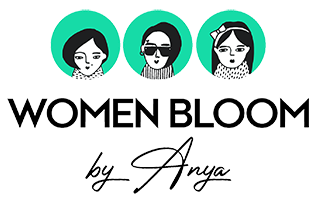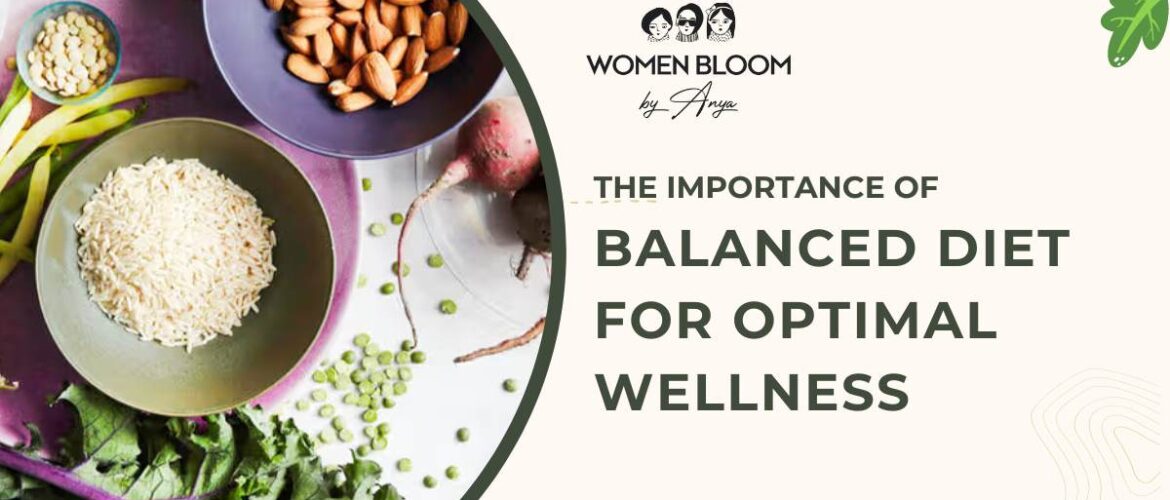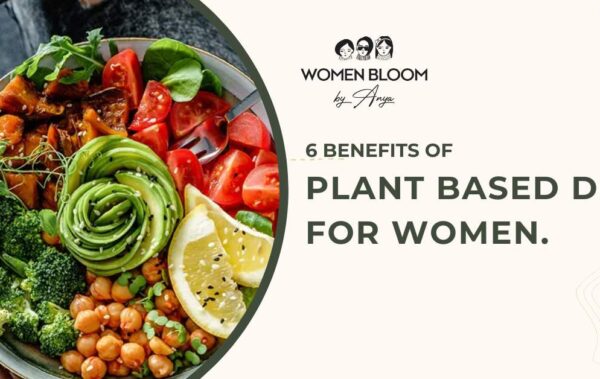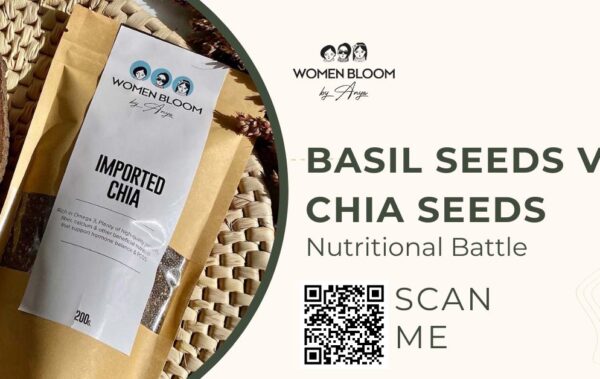A few important parameters, including age, body size, and degree of physical activity, must be taken into account when planning a balanced diet for women. Understanding the importance of a balanced diet, these broad recommendations will assist you in creating a nutritious and well-balanced diet:

- Eat a healthy variety of foods: Emphasize entire, unprocessed foods such as fruits, vegetables, whole grains, lean meats, and healthy fats.
- Always make a wise choice, try to have half of your plate full of vegetables. Incorporate an abundance of cruciferous vegetables, such as broccoli and leafy greens, along with vibrant alternatives like peppers.
- Drink plenty of fluids: Hydrating well by limiting sugar-filled beverages and consuming a minimum of 8 glasses of water daily.
- Eat a diversity of foods: To guarantee a range of vitamins and minerals, aim for a plate that is as colorful as a rainbow.
- Choose fresh fruit whenever you can, and experiment with different hues. Apples, grapefruits, berries, and grapes are all excellent options.
- Keep an eye on portion sizes. Eating the right amounts of food will help you stay healthy overall and keep a healthy weight.
Consuming whole grains contributes extra minerals and fiber. Brown rice, oatmeal, and whole grain breads are examples of this.

- Think about your age and stage of life: Women who are nursing or pregnant require different nutrition than younger or menopausal women.Calculate your calories and try to be calorie deficient.
A food’s calorie count represents the quantity of energy it contains. Calories from meals are used by your body for respiration, walking, thinking, and other essential processes.
To maintain their weight, the average person needs roughly 2,000 calories per day, though this will vary depending on their age, sex, and degree of physical activity.
The average calorie requirement for men is higher than for women, and the calorie requirement for athletes is higher than for non-athletes.
For more convenience let’s make a calorie requirement chart according to age:
| Person’s age | Calorie requirement per day |
| 2-7 years | 900-1,500 |
| 8-12 years | 12,00-2,500 |
| Females- 14 -30 years | 2,500 |
| Males-14-30 years | 26,000 |
| Females over 30 | 16,00 |
| Males over 30 | 16,00 to 24,00 |
- Take note of essential nutrients: women require more iron, calcium, and vitamin D than males do. Consume foods high in fat, such as fatty fish, lean meats, and fortified dairy products.
Nuts like walnuts and fatty seafood like tuna and salmon supply important omega-3 fatty acids. One excellent source of healthful unsaturated fats is avocados.
- Don’t follow restricted diet plans: Avoid or restrict foods heavy in salt, saturated fats, and added sugars. Limit processed and sugary foods.
Here’s a general outline of a daily meal plan:
| Timings | Diet plan |
| Breakfast | Whole grain cereal with fruit and nuts, Greek yogurt with berries, or an omelette with veggies |
| Lunch | Grilled chicken or fish with roasted veggies, whole grain wrap with hummus and veggies, or a quinoa salad with lean turkey |
| Snacking | Fresh fruits, carrot sticks with hummus, or a handful of nuts and seeds. |
| Dinner | Grilled salmon or chicken with roasted veggies, brown rice, and a side salad, or lentil soup with whole grain bread. |
Remember, this is just a general guide. It’s essential to consult with a healthcare professional or registered dietitian to determine the best personalized nutrition plan for your individual needs.
Balance for you can add in your diet:
| Fruits | Vegetables | Proteins | Fats | Carbohydrates |
| Apple Banana Mango Avocado Lychee Pineapples Blueberries Oranges Dragon fruits strawberries | Pea Garlic Kale Spinach Bell pepper Cauliflower Broccoli Onion Seaweeds | Eggs Greek Yogurt Lean pork Garbanzo Beans Quinoa Salmon and sea foods Chicken Lentils Cottage cheese | Natural amino acids Desi ghee Cream Olive oil | Brown bread Unprocessed flour Whole wheat |
Perfect ratios of meals for a balanced diet:
| Vegetables and fruits | Fats | Proteins | Fiber rich carbohydrates |
| 40% | 10% | 25% | 25% |
Food to avoid in diet:
Foods that contain empty calories include the following examples:
- Donuts every day, and desserts
- Meat that has been processed soft drinks
- Drinks with caffeine, and sugar-filled fruit drinks
- Fries and chips with ice cream
- Pizza-flavored sodas
But a balanced diet does not allow you to indulge in your favorite delicious foods.It all comes down to calorie and portion control.
Nevertheless what gives food its nutritional value isn’t just the kind of meal; it’s also the ingredients.
A handmade pizza with lots of fresh vegetables on top and a wholemeal base could be a healthy option. On the other hand, highly processed foods like prepared pizzas frequently have empty calories.
Can you include diary items in your diet for achieving optimal wellness?
Dairy products offer vital nutrients such as:
- Calcium
- Protein
- vitamin D
They are also high in fat. Lower-fat products can be the ideal choice if you’re trying to cut back on your intake of fat. To make a decision, consult your physician.
There are currently a lot of dairy-free milks and other dairy substitutes available for vegans, made from:
- Cashews, almonds, and flax seeds
- Coconut soy oats
These are great substitutes for dairy products made from cows since they are frequently fortified with calcium and other minerals. When making a selection, carefully read the label as some include additional sugar.
Why is eating a balanced diet so crucial?
Your body gets the nutrients it needs from a balanced diet to function properly. Your body is more vulnerable to illness, infection, exhaustion, and poor performance when you don’t eat a balanced diet.
Youngsters who don’t eat enough wholesome foods may experience recurrent illnesses, poor academic performance, and issues with growth and development.
Additionally, they may acquire harmful eating habits that last well into adulthood.
They will also be more likely to become obese and develop other conditions that are part of the metabolic syndrome, such high blood pressure and type 2 diabetes, if they don’t exercise.
Four of the top ten major causes of death in the US are directly related to food, according to the Center for Science in the Public Interest.
- Heart attack
- Myocardial infarction
- Diabete
- Obesity
Should you avoid fat in maintaining a balanced diet?
While fat is necessary for energy and the functioning of cells, too much fat can raise calorie intake over requirements and result in weight gain.
Guidelines from the past advised against consuming saturated fats because of worries that they might increase cholesterol.
More current studiesAccording to a reliable source, replacing some of the saturated fat in the diet with unsaturated fats reduces the risk of cardiovascular disease. Saturated fat should make up no more than 10% of total calories.
Still, trans fats ought to be shunned.
It can be challenging to abide by fat recommendations at times, but according to scientific recommendation, Trusted Source has put forth the following:
- Love these fats: salmon and vegetable oils
- Limit your intake of cheese, butter, and heavy cream.
- Trans fats—found in a lot of processed and prepared foods, such donuts—are fats to shed.
The majority of specialists believe that olive oil, particularly extra virgin olive oil, which is the least processed variety, is a healthy fat.
- You should only sometimes eat deep-fried foods because they are typically low in nutritious content and heavy in calories.
Bottom lines:
A diverse and healthful diet often consists of a large amount of fresh, plant-based meals and minimal amounts of processed foods.
Make an appointment with your doctor or a nutritionist if you believe that you need to lose weight or alter your eating habits, or if you have questions about your diet.
They can offer dietary recommendations that will support your general health and help you obtain the nourishment you require.




